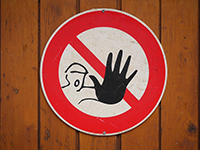 If we define craftsmanship as simply taking pride in your work, then it is the backbone of any and all tasks. You won’t get a lot of return clients without craftsmanship, and you won’t even enjoy doing the work much in the first place.
If we define craftsmanship as simply taking pride in your work, then it is the backbone of any and all tasks. You won’t get a lot of return clients without craftsmanship, and you won’t even enjoy doing the work much in the first place.
A house or a wall or an office building that you’ve built stands as a sort of enormous calling card. If that work doesn’t last, if the foundation was crafted poorly, then even if you don’t wind up with a liability case on your hands, you still have an eyesore that stands as a testament to your disinterest in the work. Better to have work stand as a testament to your abilities, even if that means turning down a job that won’t allow you to do your best work because of budgetary or scheduling issues.
Craftsmanship is the core of professionalism. If you are lucky enough to do what you love for a living, why would you not do it to the best of your abilities? Craftsmanship is how you get good reviews from your clients, it’s how you get repeat business, it’s how you support yourself.
The best way to ensure longevity in your industry is to put craftsmanship above all else. This means:
- Hiring the best people, and training them to be up to your standards
- Finding the best clients, people who will allow you to do your best work
- Turning down any jobs that would force you to compromise yourself
- Continued learning, a fifty year old carpenter should know more than they did at forty
All of this is really just a roundabout way of saying: Do the best work you’re capable of doing, every time out, and don’t take work that will force you to take shortcuts.
The truth is that the skills we develop in construction are not rare. Once you’ve got the basics down, anybody of sound mind and able body can put together a tool shed or install a sink. If that’s all you can offer, then the only front on which you can fight for business is price. But with craftsmanship, these skills are no longer simply a commodity, but something of an art form. Anybody can install a sink, but can just anybody install it with a perfect caulking seam? With craftsmanship we are not offering the same thing as our competitors, we’re offering the opportunity to have it done better.










